
[ProjectManhattan, CC BY-SA 3.0, via Wikimedia Commons]
The problem could cost Big Pharma companies billions of dollars, but proving the cancer-causing role of nitrosamines in drugs may be difficult. (Note: Nitrosamines are also in a host of processed foods, including cured meats.)
Morgan Stanley had estimated that the presence of nitrosamines in Zantac, once the best-selling drug in history, could cost GSK, Sanofi and Pfizer between $10.5 billion to $45 billion in trial judgments. But U.S. District Judge Robin Rosenberg dismissed claims related to the matter, questioning plaintiffs’ reasoning in interpreting the data linking nitrosamines in Zantac with cancer.
Nevertheless, the issue of nitrosamine-related drug recalls could spur future litigation. Drug companies have acknowledged more than 250 nitrosamine-based recalls since 2018. According to an analysis from Bloomberg Intelligence, tens of thousands of nitrosamine lawsuits have yet to be filed.
[Related: Expert answers to nitrosamine impurity questions]
Here are ten drugs that have faced recalls in recent years over the issue.
1. Irbesartan (Avapro)
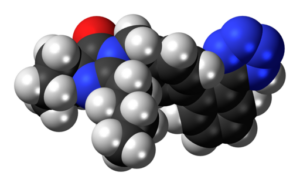
[Jynto via Wikimedia Commons]
Sanofi is the developer of irbesartan, which has the brand name Avapro.
The first generics of irbesartan became available about a decade ago.
2. Losartan (Cozaar)
In 2019, Torrent Pharmaceuticals recalled many tablets of the antihypertensives losartan potassium and losartan potassium/hydrochlorothiazide over a nitrosamine. The problem traced back to an active pharmaceutical ingredient (API) from Hetero Labs Ltd, according to Torrent Pharmaceuticals.
Merck first scored approval for the Cozaar-branded angiotensin II inhibitor losartan potassium in 1995.
3. Metformin

[Image courtesy of Wikimedia Commons]
The independent lab Valisure has also played a role in identifying tainted lots of metformin in recent years. The company also filed a citizen petition with the FDA related to its research/
4. Nizatidine (Acid)
In January 2020, Mylan began a nationwide recall of three lots of nizatidine over N-Nitrosodimethylamine in the active pharmaceutical ingredient from Solara Active Pharma Sciences. Just a few months later, in April, Amneal Pharmaceutical’s voluntarily recalled lots of nizatidine oral solution for the same reason.
5. Quinapril (Accupril)

[Image courtesy of PubChem]
In March 2022, Pfizer (NYSE:PFE) recalled five lots of Accupril-branded quinapril tablets as a result of elevated levels of the nitrosamine N-nitroso-quinapril. At the same time, Pfizer has also recalled lots of Accuretic-branded quinapril/hydrochlorothiazide. The March 2022 recall also encompassed authorized generics of quinapril/hydrochlorothiazide and quinapril HCl/ hydrochlorothiazide
6. Ranitidine (Zantac)
In 2019, FDA discovered that some batches of the OTC heartburn medication ranitidine (Zantac) had elevated levels of nitrosamines, including N-nitrosodimethylamine (NDMA).
After the lab Valisure identified the presence of NDMA in the drug, FDA eventually requested companies selling ranitidine to pull the product from the market.
7. Rifampin (Rifadin and Rimactane)
FDA noted in 2020 that certain lots of the antibiotics rifampin and rifapentine had nitrosamine impurities. As a result, the agency allowed many medications containing elevated levels of 1-methyl-4-nitrosopiperazine or 1-cyclopentyl-4-nitrosopiperazine to mitigate shortages.
8. Sitagliptin (Januvia, Janumet and Steglujan)
In August, Merck & Co. (NYSE:MRK) announced that samples of its sitagliptin-containing drugs Januvia, Janumet and Steglujan contained nitrosamine. FDA noted that it would allow the temporary distribution of sitagliptin with nitroso-STG-19 (NTTP) levels higher than its recommended limit. The agency noted that it would decide on a case-by-case basis whether to release lots of the sitagliptin drugs with elevated NTTP levels. Merck noted that it had made changes to its quality control system to ensure that its drugs met FDA’s interim limits for NTTP.
9. Valsartan (Diovan)
The popular angiotensin II receptor blocker valsartan was among the first drugs to be affected by the nitrosamine recalls in 2018. Since then, the FDA has announced dozens of such recalls. Generic versions of ARB drugs also had elevated levels of nitrosamine impurities, including N-nitrosodimethylamine (NDMA) and N-nitrosodiethylamine (NDEA). The issue is traced back to an active pharmaceutical ingredient manufactured by Zhejiang Huahai Pharmaceutical Co. Ltd. (ZHP) in China that was used in some generic valsartan-based medicines. Novartis is the original developer of the valsartan-based high-blood-pressure medication Diovan.
10. Varenicline (Chantix)
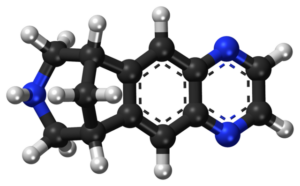
[Image courtesy of PubChem]
A federal judge in February 2022 tossed a proposed lawsuit related to the presence of N-nitroso-varenicline in some batches of the smoking cessation aid.
By May 2022, the FDA concluded that it was confident that recently produced varenicline in the U.S. met or exceeded its N-nitroso-varenicline impurity standard of 37 ng or less per day.


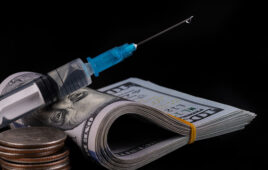
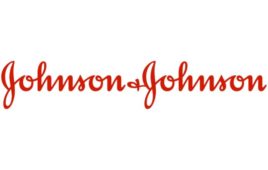
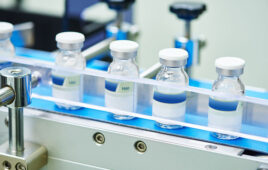
Tell Us What You Think!